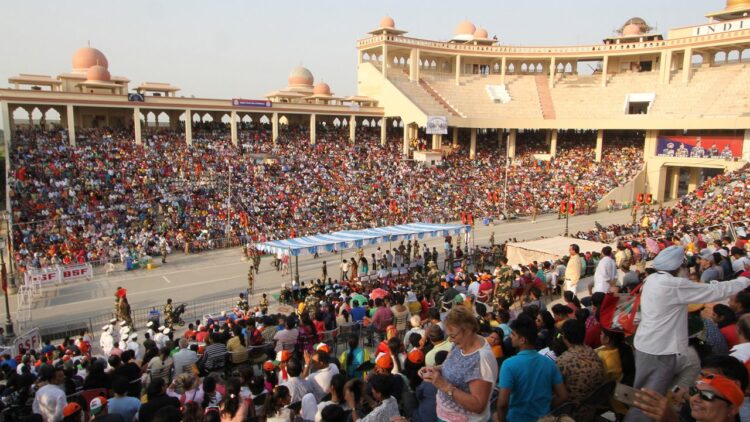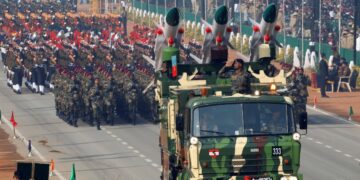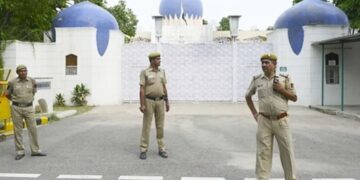KEY POINTS
- India shuts down Attari-Wagah border trade post after Pahalgam terror attack that killed 28.
- The closure impacts ₹3,800+ crore in annual trade and thousands of passenger crossings.
- Pakistan denies involvement, but Lashkar-linked TRF suspected behind the massacre.
In a decisive move following the brutal terror attack in Pahalgam that claimed 28 innocent lives, India has closed the Integrated Check Post (ICP) at Attari with immediate effect, delivering a severe economic and diplomatic blow to Pakistan. The announcement was made by Foreign Secretary Vikram Misri on Wednesday after the Cabinet Committee on Security convened to discuss India’s response to the attack.
Misri clarified that while the border is now shut for general movement, “those who have crossed over with valid endorsements may return through that route before 1st May 2025.” This exception will allow a limited number of people to return to their home countries, but after May 1, the gate will be sealed completely.
Where is the Attari-Wagah Border?
Attari is the Indian village situated opposite Wagah, Pakistan’s border post. Located 28 kilometers from Amritsar, Attari is India’s first Land Port and the only official land route for trade and travel with Pakistan. Spread across 120 acres and directly linked to National Highway-I, it has been a crucial hub for both cargo movement and limited civilian travel.
Beyond trade, the Attari-Wagah border has symbolic significance—it is where Indian and Pakistani troops exchange sweets during religious festivals like Eid and Diwali, and where tourists often gather to witness the daily flag-lowering ceremony.
Why the Closure Matters
The Attari check post has played a central role in Indo-Pak trade, especially for goods transiting between Afghanistan and India via Pakistan. Exports from India through Attari include soybean, chicken feed, red chillies, vegetables, and plastic materials. Imports from Pakistan typically comprise dry fruits, gypsum, rock salt, cement, and herbs.
The closure, therefore, halts not just India-Pakistan trade but also affects Indian-Afghan commerce, as Afghanistan relies on this corridor to export goods to India. In FY 2023–24 alone, the ICP handled trade worth ₹3,886.53 crore, 6,871 cargo movements, and over 71,000 passenger crossings.
Small traders and manufacturers who depend on this cross-border exchange are likely to bear the brunt of the shutdown. Experts warn that logistics chains involving Afghanistan will also face disruptions due to this route’s closure.
Pakistan Denies Role Amid Global Condemnation
While global outrage mounts over the attack, Pakistan has denied any involvement. Defence Minister Khawaja Asif, in a televised interview on April 23, said: “Pakistan has nothing to do with it (Pahalgam terror attack).”
Despite the denial, The Resistance Front (TRF)—a proxy of the Pakistan-based terrorist group Lashkar-e-Taiba—has claimed responsibility for the massacre. Though unverified officially, reports have surfaced that top LeT commander Saifullah Kasuri, alias Khalid, may be the mastermind behind the attack.
Backdrop of the Attack
The carnage unfolded in Baisaran, a scenic meadow near Pahalgam, just as the tourist season was gathering momentum. The attack not only coincided with U.S. Vice President JD Vance’s visit to India but also disrupted Prime Minister Narendra Modi’s trip to Saudi Arabia, which he cut short to return to New Delhi immediately on Wednesday.
As tensions between the two neighbours escalate, India’s firm diplomatic and economic retaliation signals a zero-tolerance stance on cross-border terrorism. The closure of Attari may mark a significant shift in India’s approach towards Pakistan, especially in the wake of attacks targeting civilians.

















Comments